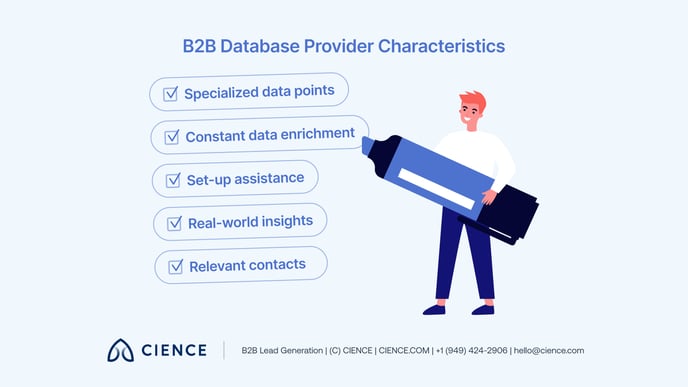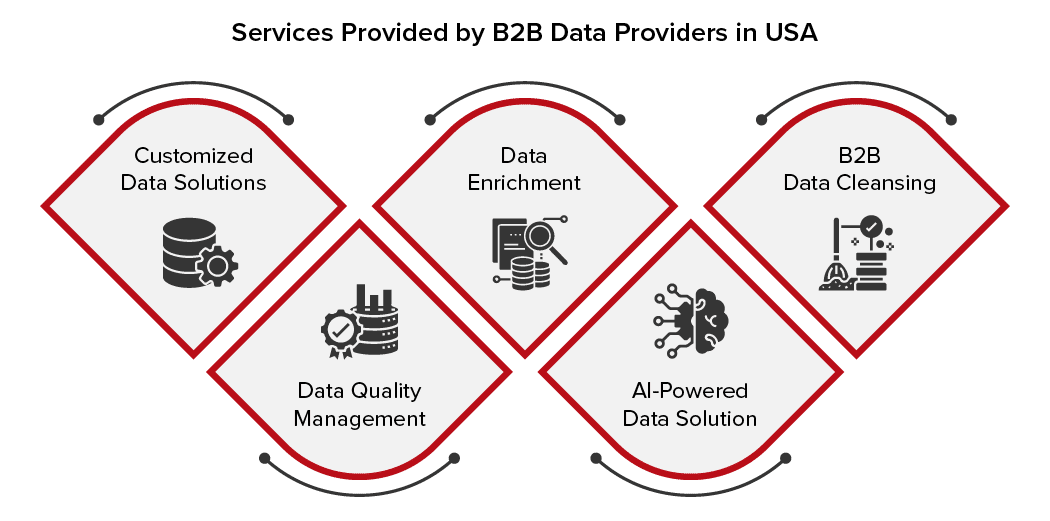The Advantages of Using a Cloud-Based Database Provider
The Advantages of Using a Cloud-Based Database Provider
Blog Article
Trick Features to Seek When Selecting a Data Source Carrier
Picking a database service provider is a vital decision that can dramatically impact your company's information and procedures management approach. Among the crucial features to think about are scalability options, which make sure that your system can adapt to growing demands.
Scalability Options
When selecting a data source supplier, recognizing scalability options is important to ensuring that the picked option can fit future growth. Scalability describes the ability of a data source system to broaden its ability and efficiency in feedback to raised demand. There are 2 key types of scalability: upright and horizontal.
Upright scalability, or "scaling up," entails improving a solitary server's sources, such as CPU, RAM, or storage space. This approach can be cost-effective and uncomplicated for smaller applications however might get to a restriction where even more upgrades are unwise or also pricey.
Straight scalability, or "scaling out," involves adding more web servers to disperse the load. This technique enables higher versatility and can suit considerable boosts in information quantity and customer website traffic (database provider). It is specifically helpful for cloud-based data source options that can dynamically allocate resources based on need

Safety Actions

When reviewing protection steps, consider the implementation of security protocols (database provider). Data-at-rest and data-in-transit file encryption are necessary to guarantee that delicate information remains safeguarded, also in the event of a security breach. Additionally, try to find providers that supply strong verification systems, such as multi-factor verification (MFA), to additionally boost accessibility control
Regular security audits and compliance with sector standards, such as GDPR or HIPAA, are indicative of a company's dedication to information protection. Additionally, make inquiries about their event action strategy; a robust strategy can decrease the effect of any possible protection incident.
Performance Metrics
Examining performance metrics is crucial for organizations to make sure that their chosen database carrier meets operational demands. Secret efficiency metrics consist of response time, scalability, and throughput, which collectively identify the effectiveness of database procedures under varying lots.
Action time is crucial, as it shows how swiftly the database can refine inquiries and return outcomes. Organizations must look for metrics that indicate typical action times throughout height and off-peak hours. Throughput, usually gauged in deals per second (TPS), gives understanding into the data source's capability to manage high volumes of demands without efficiency destruction.
Scalability examines the data source's capability to grow with the organization's requirements. A robust data source supplier ought to show horizontal and vertical scaling capabilities, enabling seamless modifications as needs rise and fall. Additionally, understanding latency, especially in dispersed systems, can aid organizations review the responsiveness of the data source throughout different geographical locations.
Customer Assistance
Dependable customer assistance is a cornerstone of effective data source monitoring, supplying organizations with the aid needed to enhance and settle problems performance. When picking a database supplier, evaluating the degree of client assistance they provide is important. A robust assistance system ought to include numerous networks of interaction, such as phone, e-mail, and live conversation, making certain that customers can access assistance whenever they require it.
Furthermore, receptive support groups that are readily available 24/7 substantially improve the dependability of the database solution. Trigger reaction times and efficient resolution of problems the original source can significantly decrease downtime and increase overall performance. It is likewise helpful to consider the availability of devoted support employees, that can provide customized aid based upon an organization's particular requirements.
/B2B%20data%20providers/EN_graphic-data-provider-Cognism.webp?width=650&height=414&name=EN_graphic-data-provider-Cognism.webp)
Rates Structure
When considering a database company, the prices framework is a crucial variable that can considerably influence a company's page spending plan and general method. A versatile and transparent prices model is important for straightening the database costs with business demands - database provider. Organizations should review whether the pricing is based on consumption, per user, or a level price, as each model can generate different financial effects in time
It is necessary to evaluate any kind of added expenses connected with the provider's services, such as information storage fees, deal expenses, and assistance costs. Some companies might offer tiered pricing, permitting scalability as the organization expands, while others may impose stringent limits that might become expensive as data needs enhance.
Furthermore, companies ought to think about the long-term value of the database service. While lower preliminary rates can be appealing, they may not represent future upgrades, maintenance charges, or combination expenses. Performing an extensive cost-benefit evaluation will certainly aid recognize one of the most ideal rates framework that balances scalability, efficiency, and assistance, eventually making sure that the picked data source supplier lines up with the organization's financial and functional purposes.
Conclusion
In verdict, choosing a data source service provider demands mindful read here consideration of various essential attributes. Reviewing efficiency metrics enables the identification of effective data sources, and available consumer support enhances the overall individual experience.
Selecting a data source service provider is a vital choice that can dramatically impact your company's data and operations management strategy.When picking a data source company, comprehending scalability alternatives is important to making certain that the selected solution can accommodate future growth. When choosing a database provider, reviewing the level of client assistance they supply is vital.When taking into consideration a data source carrier, the rates structure is a pivotal aspect that can considerably influence an organization's spending plan and overall technique. Carrying out a complete cost-benefit analysis will certainly assist identify the most suitable pricing framework that stabilizes performance, assistance, and scalability, eventually making certain that the chosen database service provider aligns with the company's financial and operational purposes.
Report this page